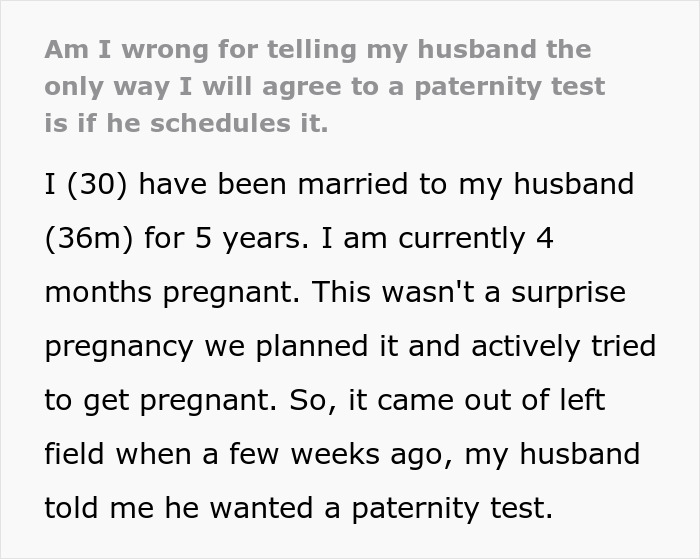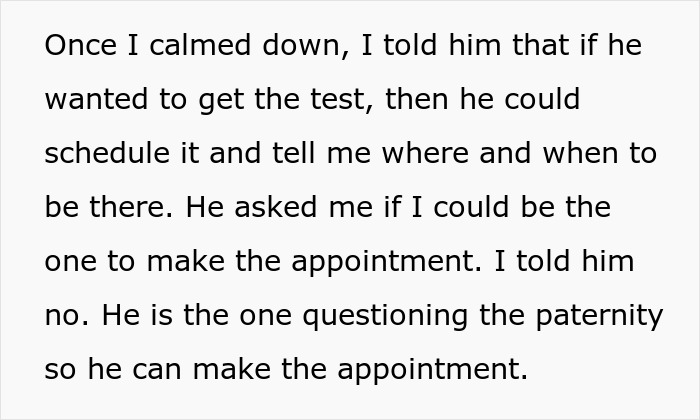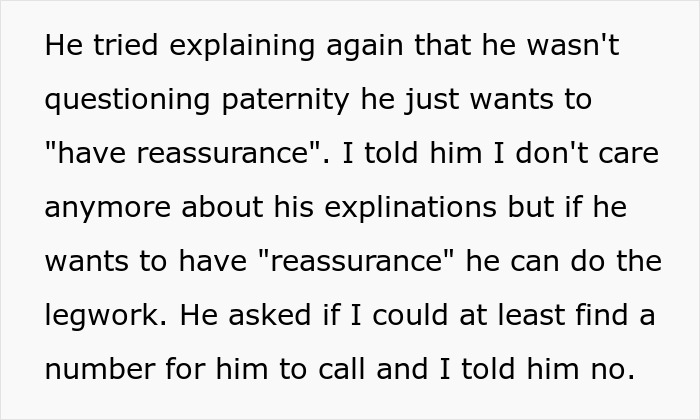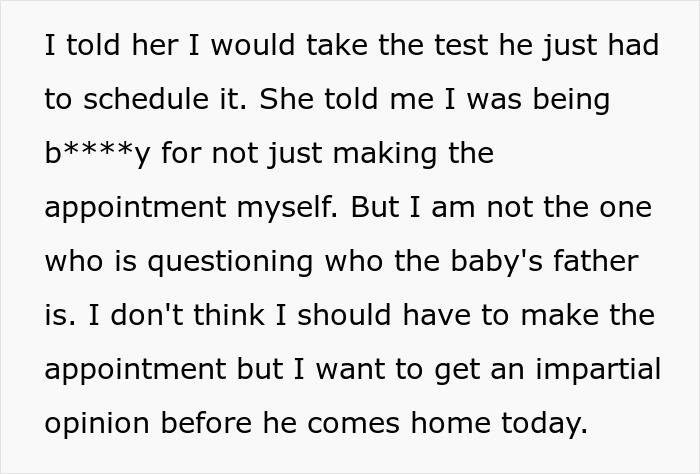Waiting for a baby to arrive is a very special time for a couple. There’s all this excitement about bringing new life into the world and preparing for every possible scenario so the little human feels as comfortable as possible upon arrival.
Unfortunately, such a wholesome experience was soured for this couple when the husband asked for a paternity test 4 months into the pregnancy. The wife was very confused about his request, as he had no reason to believe she was unfaithful to him. He still insisted on it, and she finally agreed, but only if he scheduled it himself.
There’s a lot of excitement involved in bringing a new life into the world

Image credits: demopicture / envato (not the actual photo)
But this husband soured the wholesome experience by asking for a paternity test





Image credits: nd3000 / envato (not the actual photo)




Image credits: anonymous
300,000 paternity tests are performed in the US annually
Approximately 300,000 paternity tests are performed in the US annually, and far more men than women prefer to do them when the baby is born. There are various reasons for it, like needing to prove the fatherhood of a child to put some minds at ease, legally gaining rights over an offspring, learning more about their lineage, or resolving any questions concerning their genetics.
If proof of fathership is required for legal reasons, then the process becomes more complicated with the DNA samples being collected and authenticated by a medical professional. In cases where it’s led by curiosity or accusations of infidelity without involving government institutions, it can be done with at-home tests.
Such an option allows the couple to prove paternity discreetly without having to go into a doctor’s office or a lab. Because salivary samples are very exact, such at-home tests are generally 99.99% accurate.
A person can order them online or pick them up at their local pharmacy. Going from there, they need to collect a sample using swabs in the test kit. Once that’s done, they are sent to the lab, where they’ll be examined. Afterward, the results are delivered through mail or to an online account, ensuring one’s privacy.
In situations where the woman is pregnant, this may require non-invasive prenatal paternity testing, which can be done as early as seven weeks into pregnancy. It’s completely safe and is obtained through a blood test.
Paternity testing may have severe effects on mental health
The decision to perform a paternity test is never an easy one. It inevitably will be surrounded by questions, judgments, doubts, and anxieties. Psychologist Tommy Williamson from Psychreg proposes that making this choice can have negative effects on the mental health of both the parent and child.
He mentions that the results of the test may reveal truths that are hard to process. If the child turns out not to be biologically related to the person they considered to be their parent, they may feel unwanted and hurt. On the other hand, if a child finds out that their father is an individual they aren’t familiar with, they may be confused and unsure.
This may lead to them suffering from mental health disorders like depression, anxiety, and even posttraumatic stress disorder in their early years.
While for fathers, a positive result may bring relief, a negative one can be extremely upsetting. Similar to the offspring, they can feel rejected and full of uncertainties. It’s also quite common for them to feel guilty after going through with it, knowing that they’ve caused discomfort to children or uncovered family-breaking information.
However, with or without it, doubts about a child’s true father can still threaten the happiness of a family. Occasionally, knowing the truth can be freeing, especially in cases of paternity fraud.
Commenters supported the wife and shamed the husband for not being able to schedule the appointment



















